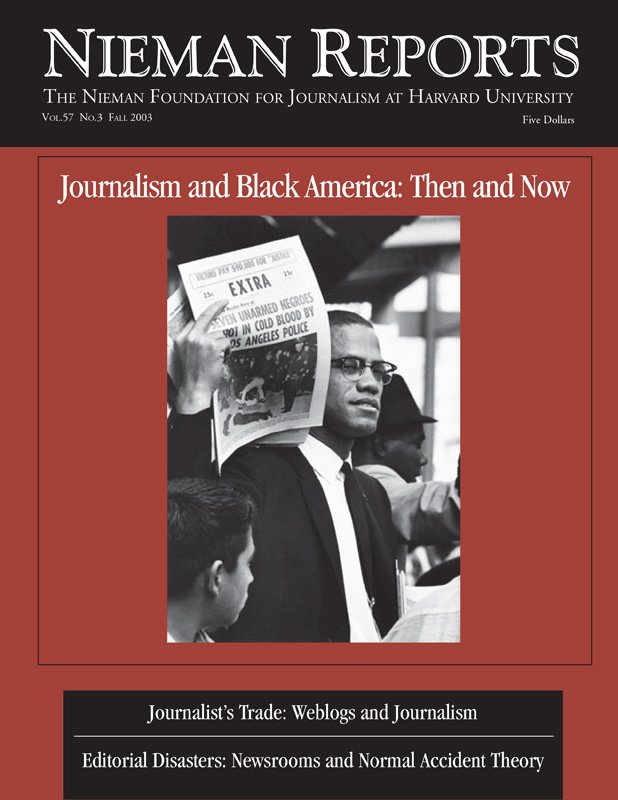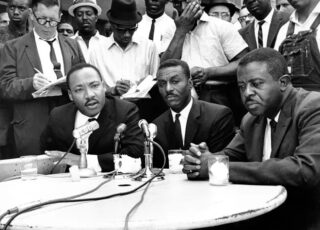ISSUE
Fall 2003

Journalism and Black America: Then and Now
Black and white journalists, at times working as colleagues, at other times separately, have produced the first draft of our nation’s difficult history of race relations. In this issue of Nieman Reports, journalists examine reporting at the intersection of black and white America and look at the racial conditions, climate and conversations in newsrooms. – Melissa Ludtke, Editor
